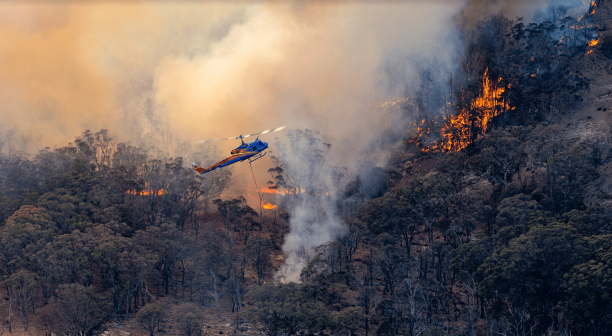This blog is a summary of a section within our ebook we recently published, which details our discussion with Richard Alder, the Former GM of NAFC in Australia.
You can get your own free copy here today.
The devastating 2019 bushfires in Australia taught us a lot. They shook the firefighting world and made us realise the true extent of what we need to be prepared for.
We saw that aviation played an important role in protecting communities - and we realised that from a safety perspective, a lot needed to be learned.
Key takeaways:
Richard Alder, Former GM of NAFC, states the two most important lessons he’s learned:
- “We need to plan for the worst. This means making sure adept emergency response plans and contingency plans are in place. For example, figuring out where your crews are going to come from when facing unusually extended operations. What to do when resources that you plan to last for months are used up in three weeks. How you plan to get spare parts when a pandemic could inhibit your supply chains. Having backup plans in place in case of communication failures… These are the things you need to be thinking about.”
- “Good quality information is absolutely crucial. Operators need situational awareness for planning responses, and reliable information about what their assets are doing. In today’s age, all of this data can be automatically uploaded with the help of technology. This is vital, as fire and emergency agencies are now placing heavy emphasis on obtaining good quality data about what/where/when aircraft are delivering.”
Where are we heading?
“The science is unequivocal. Australia is getting hotter, rapidly. So we can only expect to see more severe weather events occurring,” says Richard Alder.
“Communities need to plan and prepare for this. There is a real likelihood of longer fire seasons occurring, so agencies need to be making sure resources are available year round, and locally based. That means these agencies also need good data on what's available at any point in time.
Again, it comes down to being prepared and having the right tools, resources, and technology in place.”
Are you involved in bushfire response?
We enhance aerial firefighting operations by providing a globally trusted tracking and communications platform.
Talk to us today to learn more.
